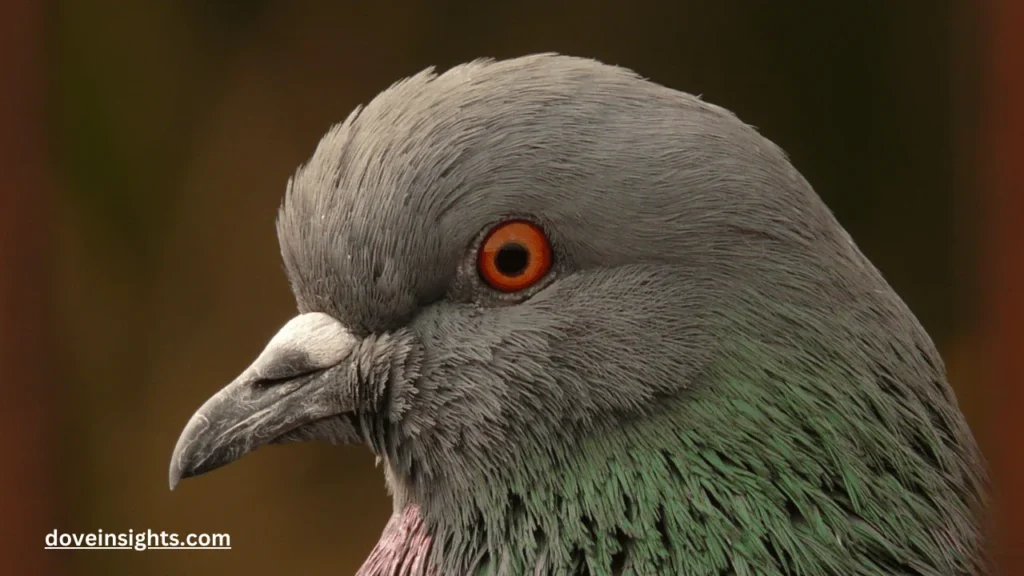Doves are often symbols of peace, love, and tranquility, fluttering gently through the sky with their soft coos filling the air.
But have you ever wondered where these peaceful creatures find rest after a long day of soaring? Doves are often seen perched on fences, trees, or even rooftops, but understanding their sleeping habits is more than just a curiosity—it’s an intriguing glimpse into how these graceful birds navigate the world around them.
Just like other animals, doves have specific places and behaviors when it comes to finding safety and rest at night, making their sleep habits as fascinating as their daytime activities.
Sleep is essential for every living creature, and doves are no exception. As you may know, doves are gentle, social creatures that usually flock together during the day, but what happens when night falls? Where do they sleep?
What conditions do they need to feel safe and secure while they sleep? These questions lead us to explore not only the habitats of doves but also their instincts, behaviors, and survival strategies.
This article will delve into the sleeping preferences of doves, shedding light on their patterns and offering insights into how these birds manage to rest in a world filled with potential predators and environmental challenges.
You might be surprised to learn that while doves appear to be simple, serene birds, they actually have quite intricate sleeping habits.
From the places they choose to rest to the behaviors they exhibit before settling down for the night, understanding where doves sleep can also reveal a lot about their survival strategies and how they adapt to different environments.
So, if you’re curious about the hidden world of doves and want to learn more about their sleeping patterns, keep reading to uncover the fascinating details behind where and how these beautiful creatures sleep.
Contents
The Natural Habitat of Doves:
Doves are not confined to a specific region and can be found in many parts of the world. Their natural habitat is typically characterized by open landscapes, such as forests, gardens, and wooded areas.
These environments offer the doves ample access to food, water, and shelter—everything they need to survive. During the day, they spend most of their time searching for food and interacting with other doves in their flock.
When night falls, however, they need a safe place to rest, away from the dangers that predators pose. Their choice of resting spot often depends on the surroundings they inhabit. In forests, doves will often sleep in tall trees, while in urban areas, they might find shelter in buildings or even in nooks and crannies that provide protection from predators.
Understanding where doves live during the day can give us important clues about where they choose to sleep at night.
Perches and Sheltering Spaces: The Importance of Safety
Safety is a top priority for doves when selecting a place to sleep. Unlike nocturnal creatures that are equipped to navigate in the dark, doves are diurnal birds, meaning they are active during the day and rest at night.
Because they lack the ability to see well in low light, doves prefer to sleep in places where they can easily fly away if needed.
Typically, doves will seek out high, sheltered spots such as tree branches, rooftops, or even power lines to sleep. These elevated locations offer a sense of security from ground predators like foxes or cats.
Doves have strong legs and feet designed for gripping, allowing them to perch securely on narrow surfaces for hours at a time. A sheltered perch not only helps them avoid predators but also keeps them out of the reach of harsh weather conditions like rain and wind.
Doves also tend to choose sleeping spots that are somewhat secluded.
While they can be social during the day, they prefer to sleep alone or in small groups to avoid drawing attention to themselves. In urban environments, you might even see them sleeping in areas such as window ledges or under balconies, where they are less likely to be disturbed.
The Role of Flocks in Dove Sleep Habits
Doves are known to be social animals, and their need for companionship doesn’t end when the sun sets. While they may not sleep in large groups, many doves do rest in small flocks, especially in areas where food and shelter are abundant.
Flocking provides an added layer of protection, as more eyes on the lookout can help warn others of potential dangers like predators or other threats.
In some cases, mating pairs of doves will seek a sleeping spot together. These pairs are often more protective of each other and will select sleeping spots that offer mutual protection. In larger flocks, doves may also sleep close to one another, helping each other stay safe in numbers.
This social behavior can vary depending on the environment. In more urbanized settings, doves may sleep in smaller groups or alone, especially if they are closer to human structures.
In rural or forested areas, where predators are more prevalent, doves are more likely to sleep together in dense shrubs or trees to maintain a sense of community.
Dove Sleep Patterns and Nighttime Behavior
Doves are crepuscular, meaning they are most active during the dawn and dusk hours. As night falls, they gradually settle down for the evening, seeking out a quiet, safe location where they can rest until the morning light.
\Unlike some birds that enter a deep sleep, doves remain in a semi-alert state. This means they can quickly wake up and fly away if they sense danger. Their ability to remain alert while resting is a crucial survival tactic in the wild.
Before settling down to sleep, doves engage in a series of calming behaviors. They may preen their feathers to keep them clean and in top condition for flight. Some doves also engage in “cooing”, which helps reinforce their bond with their mate or the rest of their flock.
Doves will then choose a comfortable perch and settle in for the night, often tucking their heads under their wings for warmth.
While doves do rest for long periods during the night, they are still vigilant. Unlike some other birds, doves do not enter a deep sleep and remain on guard for potential threats.
Their ability to sleep lightly but be ready to take flight at a moment’s notice is essential for their survival.
The Impact of Human Habitats on Dove Sleeping Habits

As human habitats expand, doves have adapted to sleeping in more urban environments. In cities, doves often sleep in high-rise buildings, parks, and parking lots, seeking out any ledges or structures that provide safety and shelter.
Interestingly, urban doves tend to adapt to artificial light, which can affect their sleep cycles. Though they are diurnal by nature, the presence of artificial lighting can lead to some doves becoming more active at night, sometimes disrupting their usual sleep patterns.
Urbanization also impacts dove sleeping habits by introducing new predators, such as domestic cats, hawks, and humans.
This forces doves to be extra cautious when selecting sleeping spots. In some cases, doves may even sleep closer to human activity, finding safety in areas that are less frequented by natural predators.
Conclusion:
Doves are not just beautiful creatures that symbolize peace—they are also fascinating in their behavioral adaptations to their environments.
By understanding where doves sleep, we gain valuable insight into their survival strategies, social habits, and relationship with their habitat. From high tree branches in forests to rooftops in bustling cities, doves have learned to find comfort and safety in a variety of places.
The next time you spot a dove perched in your neighborhood, take a moment to consider where it may sleep at night and how it has adapted to live alongside humans and other animals.
Whether they choose a solitary perch or a quiet spot among their flock, doves are masters of finding shelter in both the wild and urbanized world. In doing so, they remind us of the importance of safety, adaptability, and resilience in nature.
FAQ’s
Do doves sleep in nests at night?
While doves do build nests during the breeding season, they do not typically sleep in them at night once the breeding period has ended. Outside of nesting, doves prefer to find perches in trees, on buildings, or other high, sheltered places for their nightly rest. Nests are mainly used for raising their young, and once the chicks have matured, doves move on to other sleeping spots.
Do doves sleep alone or in groups?
Doves are social creatures, and while they don’t sleep in large groups, they often sleep in small flocks or close to other doves for safety. In some cases, mating pairs will choose to sleep together. Flocking helps provide an added sense of protection from predators, and sleeping in groups allows them to remain alert to potential threats.
Can doves sleep during the winter?
Yes, doves can sleep in colder temperatures, but they are highly adaptable and will seek out shelter during the winter months to stay warm. They may choose more protected areas, such as dense trees, shrubbery, or even human-made structures, to shield themselves from harsh weather conditions. Doves are cold-resistant, but their ability to find shelter helps ensure their survival through winter nights.
Do doves sleep during the day?
Doves are diurnal, meaning they are primarily active during the day. However, they do rest during the day, especially during the midday heat or after foraging. These resting periods are not considered “sleep,” as doves tend to stay alert even while resting. They are often found perched in safe spots, staying vigilant and observing their surroundings while they take brief breaks.
How long do doves sleep each night?
Doves typically sleep for about 8 to 12 hours each night. Like other birds, they are usually early risers and settle down at dusk. While they don’t enter deep sleep, doves are known for their ability to rest lightly, staying alert and prepared to fly if necessary. Their sleep cycle is usually tied to the natural light-dark cycle but can be affected by urban environments with artificial lighting.
Do doves have any special sleeping behaviors?
Yes, doves engage in several sleep-related behaviors. Before settling in for the night, they often preen their feathers to keep them in good condition, ensuring they are ready for the next day’s flight. Doves may also make soft cooing sounds, particularly if they are resting near a mate or a close group. They are also known to tuck their heads under their wings for warmth and comfort while resting.








